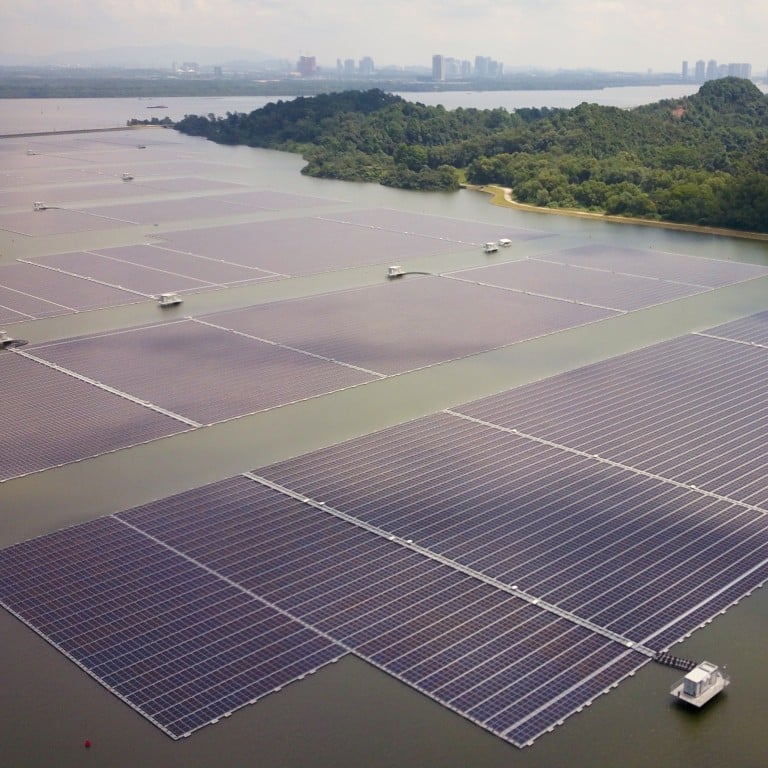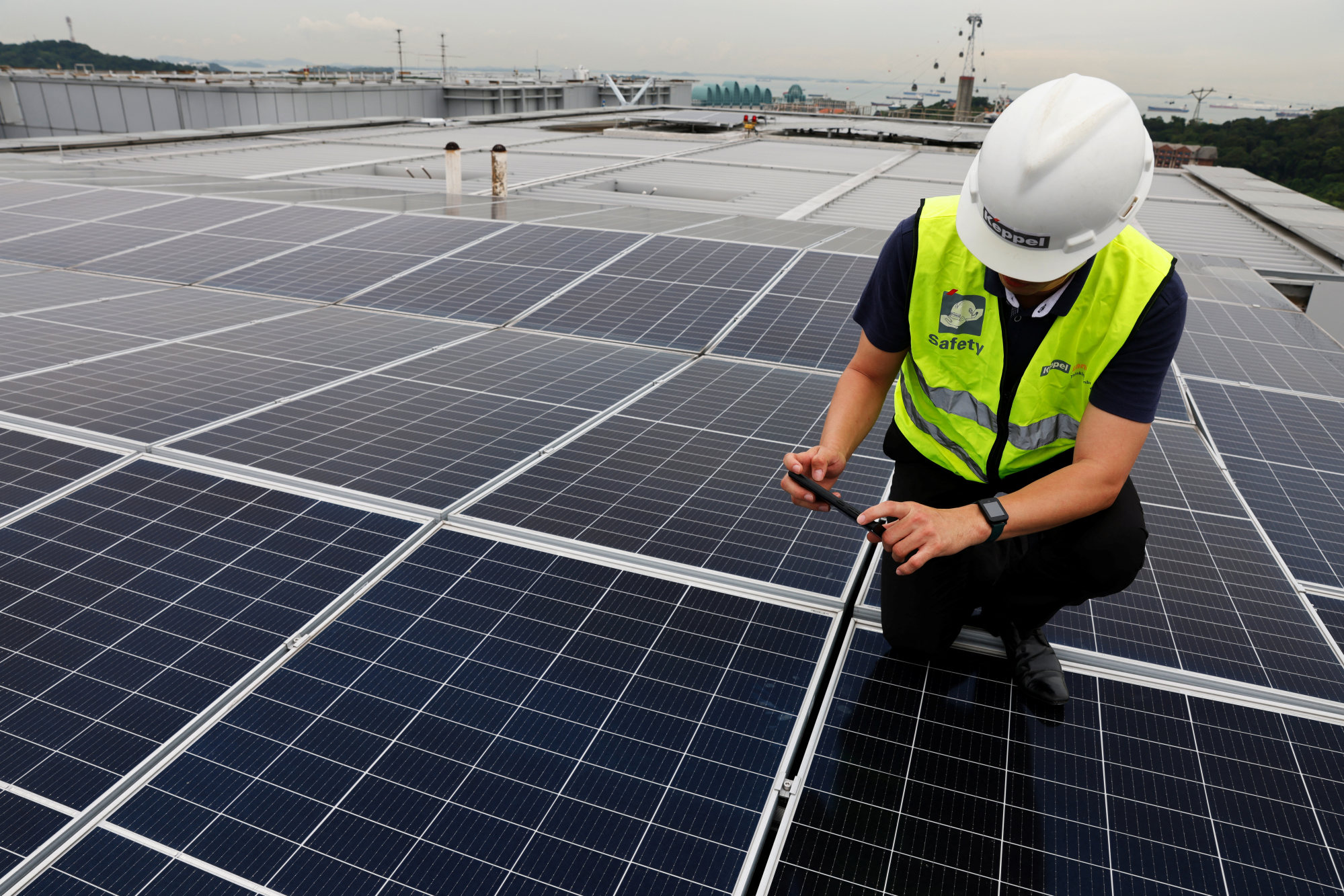
Singapore plan to import Indonesia clean energy advancing as region develops renewables ‘faster and bigger than people realise’
- Singapore currently generates 95 per cent of its electricity from natural gas, and lack of space limits the building of solar and wind farms
- Asia is rapidly developing a similar energy market to Europe, where countries routinely import electricity from neighbours
Singapore awarded initial approvals to five energy projects in Indonesia as it aims to advance plans to import clean electricity from neighbouring nations and curb its reliance on natural gas.
The projects will jointly deliver 2 gigawatts and aim to begin commercial operation from the end of 2027, Singapore’s Energy Market Authority said on Friday in a statement.
“Low-carbon electricity imports through regional power grids are a key enabler in Singapore’s efforts to decarbonise its energy supply, while accelerating renewable energy development in the region,” the authority said in its statement.
Companies awarded licenses include a unit of PT Adaro Clean Energy Indonesia, a venture including Medco Power Global, Keppel Energy, EDP Renewables APAC and a unit of Gurin Energy.
The projects will require development of a total of about 11 gigawatts of solar plants and 21 gigawatt hours of battery energy storage in Indonesia.
Could nuclear energy be Singapore’s net-zero ‘game changer’?
Singapore, which currently generates 95 per cent of its electricity from natural gas, is aiming to decarbonise its power mix but faces limits on building solar and wind farms because of its lack of available space. Authorities aim instead to import about 30 per cent of electricity by 2035.
“The growth of renewable energy in Asia is going to be faster and bigger than people realise”, as the region develops a similar energy market to Europe, where countries routinely import electricity from neighbours, said Gurin Energy’s Chief Executive Officer Assaad Razzouk. The company, which plans to supply Singapore from a solar installation on the Riau Islands, has about 7 gigawatts of projects in various stages of development across the region, including in Japan and South Korea.

Indonesia and Singapore in March signed a pact to jointly develop renewable energy projects that could supply the city-state. Singapore previously also offered approval to Keppel Energy to import 1 gigawatt of electricity from Cambodia.
Billionaire Mike Cannon-Brookes confirmed Thursday his SunCable project – which aims to send clean energy from Australia to Singapore through a 4,200-kilometre submarine cable – is in talks with authorities and intends make a submission later this month for an initial import license.

